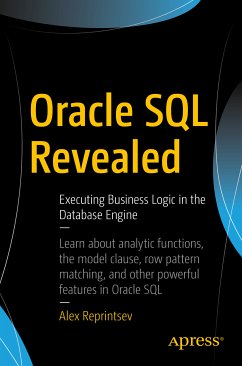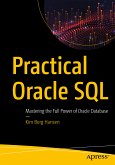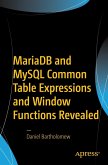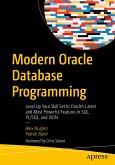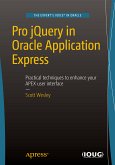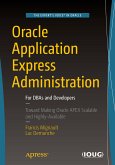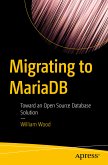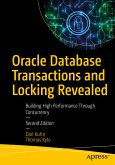Write queries using little-known, but powerful, SQL features implemented in Oracle's database engine. You will be able to take advantage of Oracle's power in implementing business logic, thereby maximizing return from your company's investment in Oracle Database products.
Important features and aspects of SQL covered in this book include the model clause, row pattern matching, analytic and aggregate functions, and recursive subquery factoring, just to name a few. The focus is on implementing business logic in pure SQL, with a comparison of different approaches that can be used to write SELECT statements to return results that drive good decision making and competitive action in the marketplace.
This book covers features that are often not well known, and sometimes not implemented in competing products. Chapters on query transformation and logical execution order provide a grasp of the big picture in which the individual SQL features described in the other chapters are executed. Also included are a discussion on when to use the procedural capabilities from PL/SQL, and a series of examples showing different mixes of SQL features being applied in common types of queries that you are likely to encounter.
What You Will Learn:
- Gain competitive advantage from Oracle SQL
- Know when to step up to PL/SQL versus staying in SQL
- Become familiar with query transformations and join mechanics
- Apply the model clause and analytic functions to business intelligence queries
- Make use of features that are specific to Oracle Database, such as row pattern matching
- Understand the pros and cons of different SQL approaches to solving common query tasks
- Traverse hierarchies using CONNECT BY and recursive subquery factoring
Dieser Download kann aus rechtlichen Gründen nur mit Rechnungsadresse in A, B, BG, CY, CZ, D, DK, EW, E, FIN, F, GR, HR, H, IRL, I, LT, L, LR, M, NL, PL, P, R, S, SLO, SK ausgeliefert werden.

